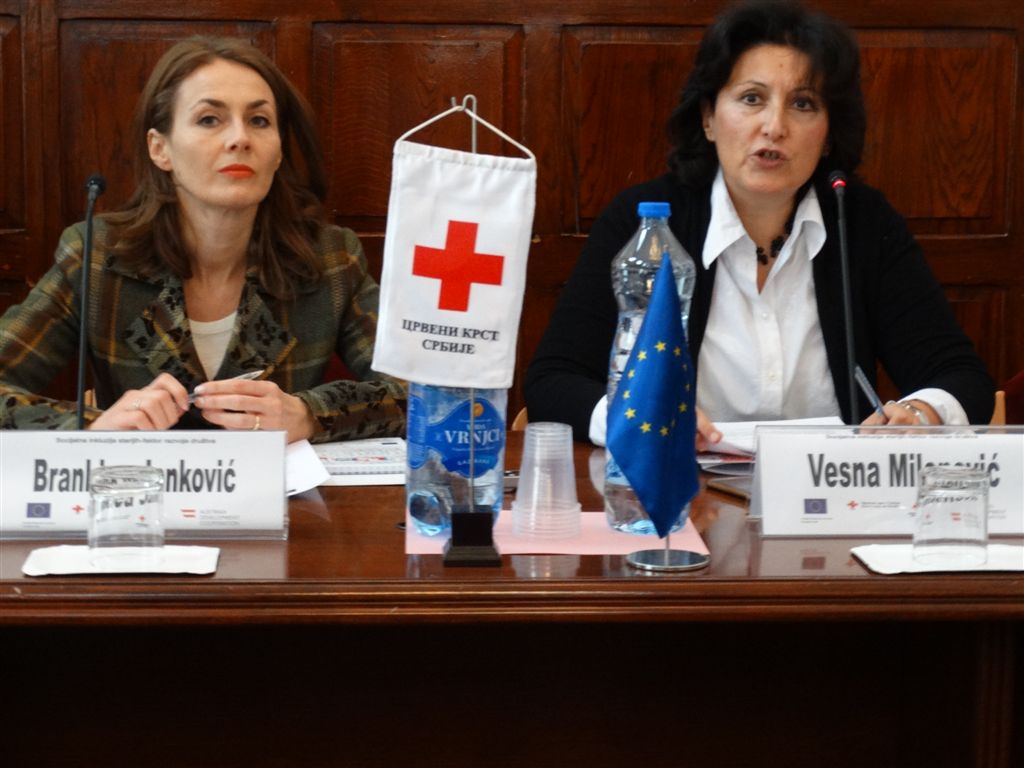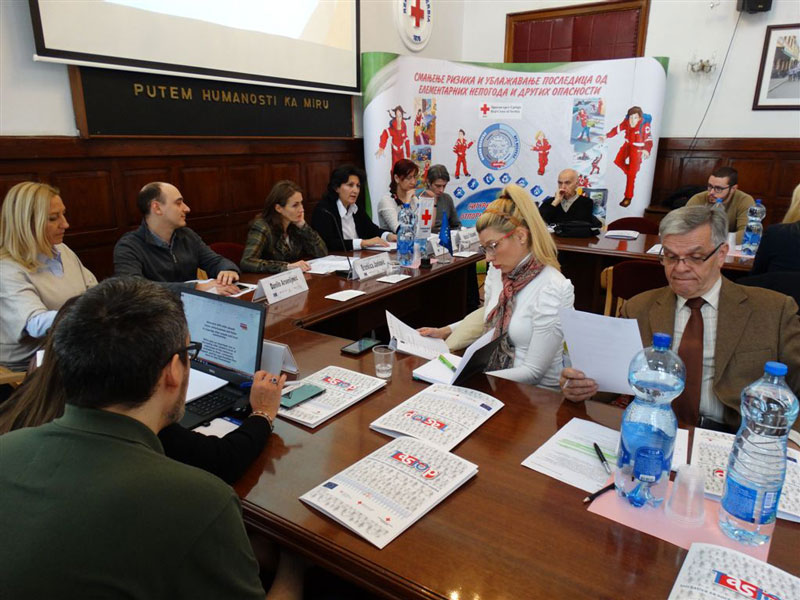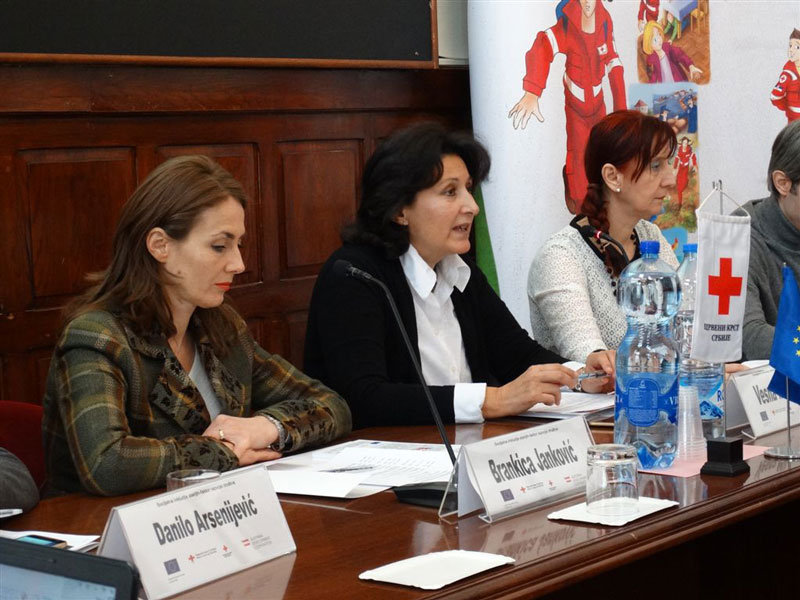Conference „Social inclusion of older people – a societal development factor”
The Conference entitled „Social inclusion of older people – a societal development factor” was organised on 20 and 21 December 2017 in the Red Cross of Serbia as part of the Taking Action on Social Inclusion of Older People project (TASIOP).
The Conference was opened by Vesna Milenovic, Secretary General of the Red Cross of Serbia speaking about networking and partnerships – essential for advocacy for better quality of lives of older women and men. The participants of the Conference included: Commissioner for Protection of Equality, Brankica Jankovic, dr Danilo Arsenijevic representing the Cabinet of the Minister without portfolio responsible for demographics and population policy, Marija Babovic of SeCons, Lina Al Qurah of HelpAge International, Office for Eastern Europe, Central Asia and Middle East, sociologist Gradimir Zaji cand Natasa Todorovic representing the Red Cross of Serbia. On the second day of the Conference, Jelena Stevic and Marija Vujkovic of Civic Initiatives NGO also took part. In addition, representatives of the Red Cross of Montenegro and network Dignitas from Montenegro and the Red Cross of Macedonia and network InkluzivaM from Macedonia also participated, their visit part of the TASIOP project activity related to exchange of good practice.
Brankica Jankovic, Commissioner for Protection of Equality presented results of a research activity done this year with the goal being defining indicators of discrimination, a pilot project still active.
Dr Danilo Arsenijevic representing the Cabinet of the Minister without portfolio responsible for demographics and population policy emphasised that in the year of intergenerational solidarity, generation gap should be bridged and intergenerational cooperation should be increased.
Marija Babovic, SeCons researcher talked about the purpose of research done by her organisation as part of the TASIOP project, pointing out essential preliminary results. For example, the risk of poverty among older people is lower than among younger people, but a question is what does this show. Leisure time is one hour shorter for women than it is for men. The research will be finished in January.
Lina Al Qurah of HelpAge International, Office for Eastern Europe, Central Asia and Middle East talked about the importance of networks for advocacy. She especially underlined that there are three way to advocate for older people: advocating for older people, advocating with older people and advocating by older people.
Natasa Todorovic of the Red Cross of Serbia spoke about the TASIOP project achievements across the five countries of the region. She especially emphasised the support to grassroots organisations through subgrantingmicroprojects and that out of 75 proposals, 48 were selected for support in Serbia, Montenegro, Albania and Macedonia. The finalisation of the call for proposals is expected in Bosnia and Herzegovina in the coming days.
Gradimir Zajic, sociologist spoke about communities and their diversity, above all them being “places” where people share something with each other. He acknowledged that older people do need support from their environment, but that they are able to prevent their own marginalisation through self-organisation.
Igor Jokanovic and JelenaSofranac talked about demographics in Montenegro and the projects targeting older people and Dignitas network.
Ljupka Petkovska presented a research done on the position of older people in Macedonia as part of the TASIOP project, the first research of this size in Macedonia.
Day two was mostly targeting the grassroots organisations supported through subgranting in Serbia. Jelena Stevic of Civic Initiatives spoke about financial procedures and financial reporting on EU projects and Marija Vujkovic, also from the Civic Initiatives discussed visibility of EU projects and fulfilment of requirements related to it. The participants had the opportunity to ask questions which will contribute to better understanding of the TASIOP project and their role in it.
The TASIOP project is funded by European Union, Austrian Development Agency and Austrian Red Cross.




















